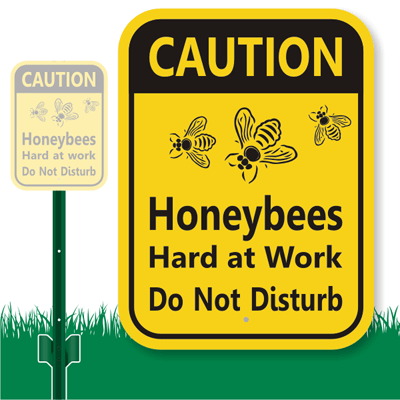Drop in honeybee population worries U.S. farmers
Bees, besides producing honey, pollinate a full 30 percent of the food we eat, like cherries, almonds, and raspberries. They’re a necessary part of our food chain and ecosystem, and they are in danger. A United States Department of Agriculture survey recently found that U.S. beekeepers lost about 30% of their honeybees colonies last winter.
WBST reports: “North Liberty beekeeper Dave Laney is bucking the trend, though. He barely lost any of his colonies this past winter. He says it’s because he doesn’t stress his bees out by moving them.
Laney says he uses no chemicals to combat diseases, which means he depends on the bees to keep themselves healthy. And Laney says he doesn’t bring in bees from outside the area.”
The drop in honeybee population means that farmers often have to import bees to pollinate crops. “Bees are one of the few insect species to remain active over the winter. In colder winter months, bees eat the honey produced throughout the summer, then form clusters to stay warm. Long, cold spells force bees to stay together to stay warm, keeping them from moving around and feeding on honey stores.” (Source: CBC News New Brunswick)
The 2012-13 winter loss could be because of a phenomenon called Colony Collapse Disorder. Beekeepers have noticed this trend since 2006. “[Colony Collapse Disorder] involves the sudden death of a large number of bees that leave the hive and disappear, reducing colonies to a handful of bees or no bees at all.”

Bees are good for you, protect them! View the sign here.
Some experts believe that bee deaths could be caused by the flu. Others theorize that tracheal mites, who attack the breathing tubes of bees, are responsible for the reduced bee population. (Source: Industry Leaders Magazine)
Pesticides could be another cause of bees dying. Researchers have found that pesticides called neonicotinoids are harmful to bees. Bumblebees exposed to this pesticide produced 85% fewer queen bees.
That could have a huge effect on bumblebee populations, because all bumblebees except the queens die when winter sets in. Bumblebee populations rely on the queens to survive the winter and found new colonies in the spring.
This decline in bee population could adversely affect humans. A possible solution could be encouraging urban beekeeping. “Many bee experts believe city bees have a leg up on country bees these days because of a longer nectar flow, with people planting flowers that bloom from spring to fall, and organic gardening practices.” (Source: Global Animal) Bee lovers have set up hives on balconies, backyards, and rooftops. Besides a rise in honey production, cities will look more beautiful too.
Category: Food Safety, News














